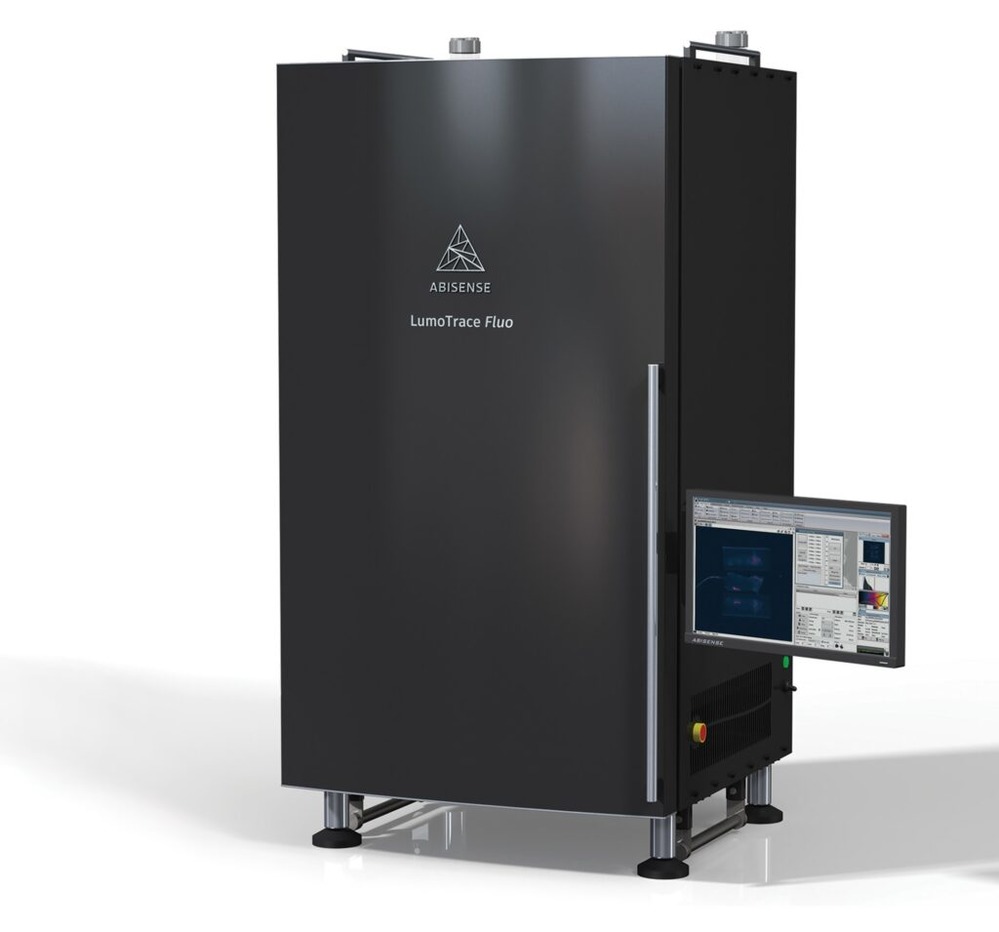Catalog
Search
42 products
View:
42 products

Genta TaqF DNA Polymerase, 5,000 units/ml, 1,000 units.
from
3 900 ₽
Genta Bst DNA polymerase is a large fragment of Bacillus stearothermophilus DNA polymerase (a 67 kDa polypeptide). The enzyme has 5’-3’ polymerase activity, but does not have 5’-3’ and 3’-5’ exonuclease activity. Genta Bst DNA polymerase has a displacing activity and can be used for isothermal amplification of DNA in the LAMP/RT-LAMP format.
The optimal temperature of enzyme activity is 60-65 °C.
Genterra
Moscow
Produced in: Moscow

GentaSpin DNA Gel Elution Kit, KI-GSGE
from
6 300 ₽
The specially formulated binding solution (GE) ensures effective cleaning with high yield. The kit is intended for scientific research only.
Benefits of the set:
Benefits of the set:
- Yield 60-90%
- Indicators A260/280 = 1.80±0.05
- Purified DNA is suitable for ligation, restriction, transformation, sequencing, and PCR reactions.
Genterra
Moscow
Produced in: Moscow

5x Genta PCR Buffer (Without Mg)
from
78 ₽
A 5-fold reaction buffer that does not contain magnesium sulfate.
Genterra
Moscow
Produced in: Moscow

Genta LAMP-buffer
from
78 ₽
A 5-fold reaction buffer suitable for use in the reaction of isothermal amplification of nucleic acids in LAMP and OT-LAMP formats.
The standard 5x Genta LAMP buffer contains 25 mm MgSO4, which corresponds to 5 mM MgSO4 in the reaction mixture.
Genterra
Moscow
Produced in: Moscow

10x Genta buffer for T4 DNA ligase (2 x 1.25 ml)
from
500 ₽
10-fold buffer for the ligation reaction, compatible with T4 DNA ligase.
Genterra
Moscow
Produced in: Moscow

Genta UDG thermolabile, 5,000 units/ml
from
1 480 ₽
Genta UDG thermolabile glycosylase is a thermosensitive enzyme that catalyzes the release of uracil from uracil-containing single- or double-stranded DNA. It is used to prevent the appearance of false positive results caused by contamination with amplicons. The enzyme does not show activity against RNA and oligomers and is fully incubated during the first PCR cycle when heated above 70 ° C, without interfering with the amplification of PCR products.
Genterra
Moscow
Produced in: Moscow

Genta-B buffer 1
from
78 ₽
Buffer for storage and dilution of DNA polymerase.
Genterra
Moscow
Produced in: Moscow

Plasmid DNA isolation kit GentaSPIN Plasmid Miniprep Plus, KI-GSPP
from
5 000 ₽
The kit is designed for isolating plasmid DNA from bacteria.
The operating principle of the kit is based on alkaline lysis of RNase-treated biomaterial, followed by selective binding of DNA from the clarified lysate on a siliconized column membrane. The colored solutions in the kit allow you to control the correct order of adding components, the completeness of lysis and neutralization.
Benefits of the set:
*product yield depends on the copy number of the plasmid, culture volume and cultivation conditions
The operating principle of the kit is based on alkaline lysis of RNase-treated biomaterial, followed by selective binding of DNA from the clarified lysate on a siliconized column membrane. The colored solutions in the kit allow you to control the correct order of adding components, the completeness of lysis and neutralization.
Benefits of the set:
- Yield up to 25 µg from 2 ml of bacterial culture and up to 60* µg from 6-10 ml of bacterial culture
- Indicators A260/280 = 1.80±0.05, A260/230 ≥ 2.1
- Plasmid DNA has been verified to be suitable for restriction reactions, transformation, sequencing, PCR, transfection.
*product yield depends on the copy number of the plasmid, culture volume and cultivation conditions
Genterra
Moscow
Produced in: Moscow

Genta-T4 DNA ligase, 400,000 units/ml
from
3 000 ₽
Genta-T4 DNA ligase is a recombinant enzyme that catalyzes the formation of a phosphodiester bond between the 5`-phosphate and 3`-hydroxyl end groups of double-stranded DNA.
Isolated from a strain of Escherichia coli expressing the bacteriophage T4 DNA ligase gene.
DNA ligase stitches both sticky and blunt ends, can repair single-strand breaks in double strands of DNA, RNA or DNA/RNA hybrids.
Genterra
Moscow
Produced in: Moscow

Genta-B buffer 2
from
78 ₽
Buffer for storage and dilution of reverse transcriptase.
Genterra
Moscow
Produced in: Moscow

Analog cap m7GmAmG
from
37 800 ₽
1 supp.
The product is a sterile 100 mM solution of the cap analogue m7GmAmG as an ammonium salt in water. The product is tested for the presence of endo- and exonuclease activity and is free from DNase and RNase contaminants. The purity of the nucleotide according to HPLC data is not less than 96%. Functional activity was confirmed in vitro in a transcription reaction.
BIOLABMIKS
Novosibirsk
Produced in: Novosibirsk

Kit for purification of DNA and PCR products from reaction mixtures GentaSpin DNA & PCR CleanUp, KI-GSDP
from
3 100 ₽
Benefits of the set:
- DNA from any reaction mixtures, fragments from 70 to 20,000 bp in length.
- Indicators A260/280 = 1.80±0.05, A260/230 ≥ 2.0
- The isolated PCR product is suitable for ligation, restriction, transformation, sequencing, PCR.
Genterra
Moscow
Produced in: Moscow
